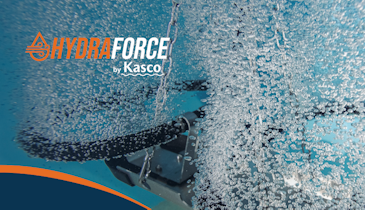Interested in Headworks?
Get Headworks articles, news and videos right in your inbox! Sign up now.
Headworks + Get AlertsScreening is one of the most important steps in the operation of a wastewater treatment facility. A well screened facility is safer, better maintained and easier to operate than a facility with failing screens. But spotting the need for better screening isn’t always as simple as looking at the equipment.
HUBER Technology Inc. has decades of experience in identifying the signs that could indicate your screen is failing. Downstream indicators can do wonders to help diagnose a failing screen, and often, these downstream processes will be pain points in your operation that you’ve had to remedy or work around.
The following downstream processes are affected by improper screening treatment. Any of them can also be a sign that you are about to have headworks screen fail:
- Wear and debris accumulation in the grit system: Without proper screening, debris will accumulate in the grit trap, causing wear on equipment. Check your grit handling equipment regularly for signs of wear and accumulation of debris.
- Presence of debris in separated grit: A failing headwork’s screen will affect grit quality in terms of volatile solids content in the grit and physical appearance (debris in the dewatered grit). A grit washer, which classifies and washes the grit slurry in lieu of a classifier only, might help to alleviate this problem.
- Clarifiers: Screenings debris might impair the operation of clarifiers. Some debris may float on the surface, impairing skimming of the surface, and other materials might settle in the bottom and impair the operation of skimmers and pumps.
- Digester equipment: Digester mixers and heat exchangers could potentially be blocked by accumulated screenings debris, making it necessary to clean digesters and heat exchangers on a frequent basis. If you find yourself needing to clean your digesters on a more regular basis, a failing screen may be an explanation.
- Pumps: Pumps are generally designed to handle some level of impurity in the water they’re handling, but pumps might become blocked and wear out faster due to screenings debris. This is especially true for grit removal pumps, which are engineered for certain tolerances in the solids they pass through. If pumps are wearing out faster than specified, there may be a debris issue caused by a failing screen.
- Dewatering systems: Dewatering systems, especially centrifuges and belt filter presses, are negatively affected by screenings debris in the sludge to be dewatered. Screenings debris in sludge also poses a problem as far as the content of the dewatered cake. In many locations, the presence of plastic makes the creation and land application of biosolids illegal. Additionally, some sludge drying systems require debris in dewatered cake to be limited to a certain size, often smaller than 3/8 inch, to prevent operational problems. If your drying equipment is choking on the sludge you’re trying to pass through it, it may point to a screening issue.
Sometimes however, the issue isn’t one of a failing screen, but one that wasn’t properly sized to begin with. There are many factors which should be considered when sizing a screen for a treatment facility.
HUBER Technology Inc., based in Denver, North Carolina, is one of the country’s largest manufacturers of wastewater, sludge and grit handling equipment. HUBER offers multiple screening and filtration solutions for municipalities and numerous industrial wastewater and intake applications. For more information on any of HUBER’s product lines, please complete the form at www.AskHUBER.com
Visit the HUBER Technology, Inc. Storefront






